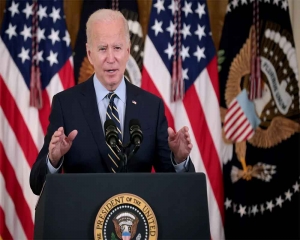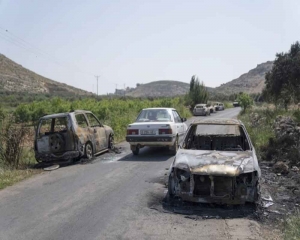Many reform measures have been announced for the higher education sector but for them to show results, gaps within the system need to be plugged
September 5 is celebrated as Teacher’s Day every year in remembrance of late philosopher-teacher and former President Sarvepalli Radhakrishnan. The country honours the role of teachers on this day. This year, too, the National Awards for Teachers have been announced but it was for the first time that the process was totally changed. In the new system, teachers could nominate themselves online. Over 6,600 teachers applied for the award and 45 meritorious teachers were chosen. There are 1,24,755 teachers in the country, according to 2017-18 official figures. Since the subject is vast, covering millions of students in schools and colleges, I want to focus on the problems pertaining to higher education. The upward mobility of the middle-class has enabled more students to go for higher education. Today, there are 903 universities in the country. There are 10,011 stand-alone institutions and 37,977 affiliated colleges and 1,550 constituent institutions. But do the schools provide quality educationij
Union Human Resource Development (HRD) Minister Prakash Javadekar has taken several measures to fulfill the promises made by the Bharatiya Janata Party (BJP) in its 2014 election manifesto; though implementation still remains one of the key challenges. Instead of getting under the grip of Rohith Vemula and Kanhaiya Kumar controversies, he started addressing other concerns. Several initiatives of the Government are good in intent but there has to be a holistic approach to drive them towards implementation. Javadekar reels off an impressive list of new initiatives, which include the establishment of 20 world-class universities, the revival of ranking of educational institutions, pushing for quality education and accountability, freeing Indian Institutes of Management from Government control, graded autonomy for top schools, reviving the CBSE Class X Board exam and establishing an online academic depository.
Seven new Indian Institutes of Management, seven Indian Institutes of Technology and two more Indian Institutes of Science Education and Research have been started. As a part of educational reforms, the HRD Ministry is also in the process of scrapping the two-year BEd course and plans to replace it with a four-year integrated programme. Massive Open Online Courses (MOOC) have been initiated under the SWAYAM scheme and online degrees have also been approved. A single testing agency is also on the cards. The new education policy, which is in the making, may be finalised before 2019. New Higher Education Regulatory Council (HERC), subsuming all current regulatory authorities, such as University Grants Commission (UGC), All India Council for Technical Education (AICTE) and National Council for Teacher Education (NCTE) is underway, though it has created some controversy.
The question is whether there is some disconnect between what is taught and what is needed in a rapidly changing global scenario and whether the quality of education has improved in schools and colleges. This is imperative because, by 2050, India will have about 1.1 billion young people in the labour market, the highest in the Asia Pacific. India’s aspirational youth want better education and they want it now. Is the country ready to provide thatij The HRD Ministry claims to be making efforts to meet the challenges. While adult literacy rates are rising, only six per cent of Indians graduate from college, though in absolute terms, the numbers enrolled in colleges and universities are about 31.56 million. Drop out rates are also on the rise. Moreover, it is frustrating for the youth who come out of colleges and don’t get jobs.
To boost the HRD Ministry’s efforts, Union Finance Minister Arun Jaitley had announced a series of reforms in the 2018 Budget. The Government has allocated one lakh crore rupees to upgrade the educational infrastructure and technology over the next four years to tone up the system. Indeed driving more accountability into private colleges is a must, as better regulation is needed in these institutions. Some of them even run without the required infrastructure. While a few elite universities get support, they lack quality. There is every need to boost efforts in research. India has 7.8 scientists per 1,000 population compared to 180.7 in Canada, 53.1 in South Korea, and 21.2 in the United States. Clearly, much more needs to be done if India wants to become a superpower and compete globally.
The BJP’s manifesto promised to spend six per cent of the GDP on education, which remains a pipe dream. Besides, there are other reforms too which are yet to be undertaken. Most importantly, teacher shortages must be addressed. Teacher-student ratio is also quite irrational. Of the 17,106 teaching positions in Central universities, one-third posts were vacant last year. About two-thirds of the colleges are privately managed and more than half are in rural areas. While more public-private participation is required, quality should not be compromised. Indian economist and Nobel laureate Amartya Sen pointed out some of the malice haunting the education system, like using control of public funding as a bludgeon, prioritising programmes of study to suit political priorities,encroachment of religion, appointment of party favourites as chancellors and administrators, and providing funds for the works of anti-intellectualism. Whether one agrees with them or not, there are gaps in the system which needs to be looked into.
(The writer is a senior political commentator and syndicated columnist)

























